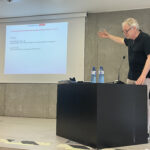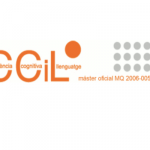25 març, 2020
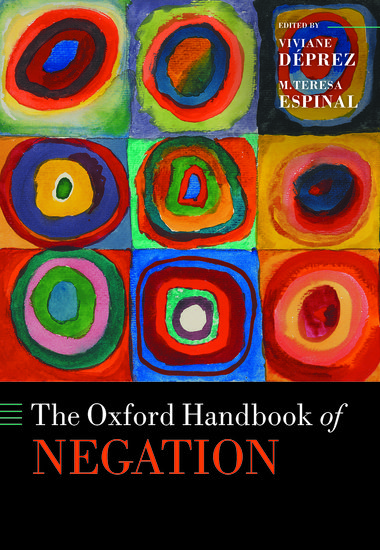
Autors:
Déprez, V. & M.T. Espinal (eds.)
Títol:
The Oxford Handbook of NegationEditorial: Oxford University Press
Data de publicació: 25 de març del 2020
Pàgines: 896ISBN13: 9780198830528
Més informacióIn this volume, international experts in negation provide a comprehensive overview of cross-linguistic and philosophical research in the field, as well as accounts of more recent results from experimental linguistics, psycholinguistics, and neuroscience. The volume adopts an interdisciplinary approach to a range of fundamental questions ranging from why negation displays so many distinct linguistic forms to how prosody and gesture participate in the interpretation of negative utterances. Following an introduction from the editors, the chapters are arranged in eight parts that explore, respectively, the fundamentals of negation; issues in syntax; the syntax-semantics interface; semantics and pragmatics; negative dependencies; synchronic and diachronic variation; the emergence and acquisition of negation; and experimental investigations of negation. The volume will be an essential reference for students and researchers across a wide range of disciplines, and will facilitate further interdisciplinary work in the field.
10 juny, 2020
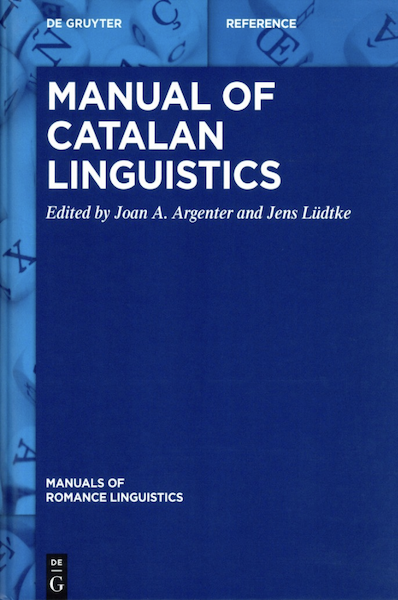
Autors:
Gemma Rigau / Xavier Villalba / Jaume Mateu (entre d'altres)
Títol:
Manual of Catalan LinguisticsEditorial: De Gruyter
Data de publicació: Juny de 2020
Més informacióThis manual is intended to fill a gap in the area of Romance studies. There is no introduction available so far that broadly covers the field of Catalan linguistics, neither in Catalan nor in any other language. The work deals with the language spoken in Catalonia and Andorra, the Balearic Islands, the region of Valencia, Northern Catalonia and the town of l'Alguer in Sardinia. Besides introducing the ideologies of language and nation and the history of Catalan linguistics, the manual is divided into separate parts embracing the description – grammar, lexicon, variation and varieties – and the history of the language since the early medieval period to the present day. It also covers its current social and political situation in the new local and global contexts. The main emphasis is placed on modern Catalan.
The manual is designed as a companion for students of Catalan, while also introducing specialists of other languages into this field, in particular scholars of Romance languages.
1 març, 2020
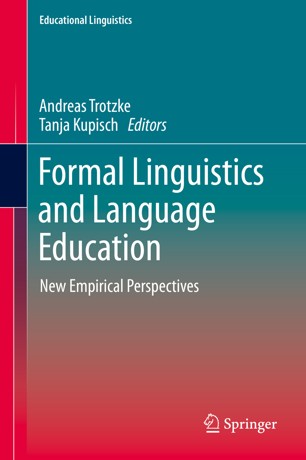
Autors:
Andreas Trotzke & Tanja Kupisch (eds.)
Títol:
Formal Linguistics and Language Education, New Empirical PerspectivesEditorial: Educational Linguistics vol.43, Springer
Data de publicació: Juny de 2020
Més informacióThis volume focuses on work that has its origin and motivation in formal linguistics and theory-driven research on the acquisition of grammar, and on this basis tries to establish links to language pedagogy, including students’ and teachers’ beliefs about what ‘grammar’ actually is. The contributions to this volume cover a wide range of empirical linguistic domains and concern aspects of morphosyntax, including word order, inflectional morphology, article systems, pronouns, compounding patterns, as well as orthography and students’ general beliefs about grammar.
14 abril, 2020
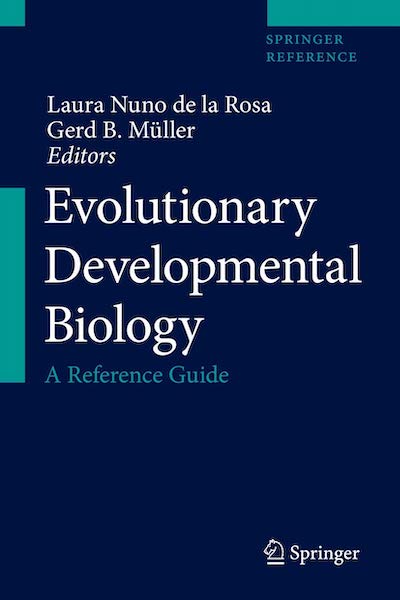
Autors:
Sergio Balari & Guillermo Lorenzo
Títol:
Evo-Devo of language and cognition. In L. Nuño de la Rosa & Gerd B. Müller, eds. Evolutionary Developmental Biology. A Reference Guide.Editorial: Springer
ISBN13: 978-3-319-33038-9
Més informacióHistorically, the task of disentangling the evolutionary origins of language has been obscured by a number of difficulties that may be diagnosed as the problem of ontology (what the evolved phenotype is), the problem of computation (what kinds of cognitive processes subserve linguistic activity), the problem of representation (what is the nature of the objects of computation), the problem of homology/novelty (how language relates with animal cognition at large), and the problem of selection (how language has been fixed as a species-typical trait). While assuming that facets of these problems remain as recalcitrant as ever, this chapter explains how the adoption of the developmental perspective offers the promise of gaining a degree of explanatory accuracy hitherto unknown in this field of specialization.
15 juny, 2021
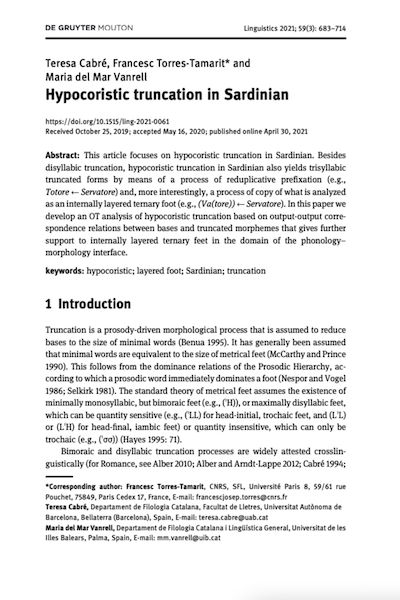
Autors:
Teresa Cabré, Francesc Torres-Tamarit i Maria del Mar Vanrell
Títol:
Hypocoristic truncation in Sardinian, Linguistics vol. 59(3)Editorial: De Gruyter
Data de publicació: 30 abril 2021
Més informacióThis article focuses on hypocoristic truncation in Sardinian. Besides disyllabic truncation, hypocoristic truncation in Sardinian also yields trisyllabic truncated forms by means of a process of reduplicative prefixation (e.g., Totore ← Servatore) and, more interestingly, a process of copy of what is analyzed as an internally layered ternary foot (e.g., (Va(tore)) ← Servatore). In this paper we develop an OT analysis of hypocoristic truncation based on output-output correspondence relations between bases and truncated morphemes that gives further support to internally layered ternary feet in the domain of the phonology–morphology interface.







